
 |
| ::: |
According to myth, the first inhabitants of Lesvos were the the Pelasgeans, who gave it its initial name "Pelasgia".
During the Prehistoric era, the island was called "Makaria", "Lassia", "Aeolis", "Ethiope", but its current name "Lesvos" comes from "Lesvos", son of the Greek hero Lapithos. Most town names like "Mytilini", "Kalloni", "Antissa", "Eressos", "Mithymna" have a mythological origin.
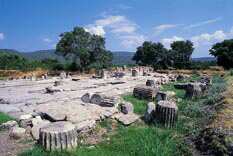
Archaeological excavations brought to light evidence that Lesvos has been inhabited since the late Neolithic times. From 1393 to 1184 BC it was inhabited by the Achaeans, while at around 1100 BC the Aeolians arrived.
The Aeolians assimilated with the Aecheans, the two cultures merged and gradually Lesvos developed into a significant hub of the Eastern Aegean. During the Archaic period (7th - 6th century BC), the population increased and the island flourished both commercially and culturally.
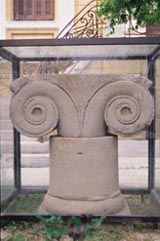
After a period of instability when the island took part in Greek wars and was occupied by various peoples, in the year 88 B.C. it was conquered by the Romans.
A period of limited self-rule followed from 62 B.C. to 70 A.D., while after the division of the Roman Empire, Lesvos was incorporated in its Eastern section. In 52 AD, the Apostle Paul visited Lesvos in order to preach Christianity.
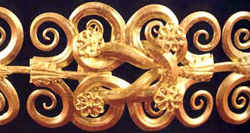
During the Byzantine period (324-1453), the island was frequently attacked and looted by Saracens, Venetians and Catalans. In 1354 the Genovese Francisco Gateluzo married the sister of the Emperor John V Palaeologos and received the island as a dowry. The Gateluzi ruled for 107 years. In 1462 the Ottomans conquered the island.
The Ottoman
occupation (1462-1817) was a period of hardship. But in the 19th century commerce
and industry developed 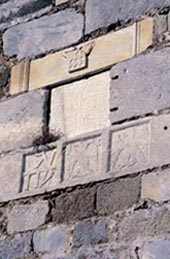 giving birth to a strong bourgeoisie that turned Mytilene
into a cosmopolitan port with a flourishing cultural production.
giving birth to a strong bourgeoisie that turned Mytilene
into a cosmopolitan port with a flourishing cultural production.
In 1912 Lesvos was liberated by the Greek fleet and was ceded to Greece by the Treaties of London and Athens in 1914. The Greek rights on the island were formally recognized by the Treaties of Sevres and Lausanne in 1923.
After the Second World War, peace returned permanently to Lesvos in September 1944
During the period 1950 - 1960 financial problems forced many Lesvians to emigrate, mainly to Western Europe and the Americas.
The Lesvian communities abroad preserve to this day their cultural identity despite the passage of time and the distance separating them from their motherland.
www.uti.gr :: Intellectual Work:: |
|
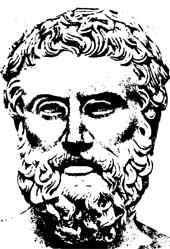
Throughout its long history, Lesvos has to show for a plethora of intellectuals.
The most famous among the ones who lived and worked on the island are:
Terpandros ( 700 B.C. ), poet and musician the father of ancient lyrical poetry, Pittakos ( 648 B.C. ) politician and one of the seven wise men of Ancient Greece, Arion ( 625 B.C. ), a charismatic lyrical poet and mucisian, Alcaeus ( 600 B.C. ), one of the best known lyrical poets of ancient Greece, and finally Sappho ( 620 B.C. ), the most famous ancient Greek poetesses whose poems, distinguished for their stylistic elegance, passion and depth of feeling, won her the name the “tenth Muse”.
Other significant personalities are Theophrastus ( 372 B.C. ) philosopher and botanist - known as the father of botany - and Theophanes ( 100 B.C. ), a significant historian who accompanied Pompey in his Asia Minor expeditions
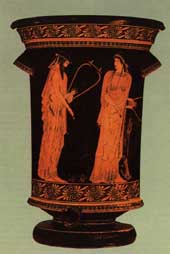
During the Roman and Byzantine periods the island’s intellectual life is relatively
stagnant. During the years of the Turkish occupation, the cultural life declines
but during the 15th century the Monastery of Lemonas becomes the center of the
island’s intellectual revival.
In the 18th century significant personalities appear: Ignatius of Hungary - Wallachia and Benjamin the Lesvian, who is numbered among a group of 18th and 19th century scholars known as the “teachers of the race”.
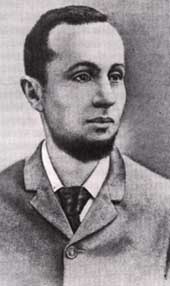 In
the 19th century, the brothers Dimitrios and Gregorios Vernardakis, Georgios
Aristedis and Christoforos Leilios support Greek education and the intellectual
life of the island.
In
the 19th century, the brothers Dimitrios and Gregorios Vernardakis, Georgios
Aristedis and Christoforos Leilios support Greek education and the intellectual
life of the island.
Later, during the 20thcentury, Argyris Eftaliotis blows new breath into Greek Literature, while the great novelists Stratis Myrivilis and Elias Venezis send pacifistic and humanistic messages to an international reading public.
F.Kontoglou, K.Makistos,
S.Paraskevaedis, P.Samaras, A.Panselinos, M.Kountouras, V.Archontides and the
poet and Nobel laureate Odysseas Elytis, whose poetry along with that of Sappho
made the beauty of the island’s nature famous, contributed to a flourishing
of the letters that came to be known as the “Lesvian Spring” 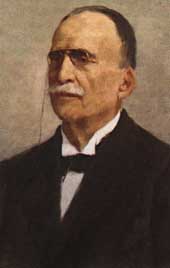
Certainly, intellectual production could not be limited to literature and poetry.
At the end of the 19th century and the beginning of the 20th F.Kontoglou, Iakovides,
Protopatsis, O.Kanellis, the famous folk painter Theophilos Chatzimichael and
the art critic and inspired editor of art-books Stratis 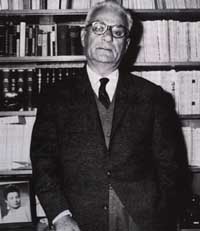 Eleftheriadis
- Teriad each makes his own contribution to art.
Eleftheriadis
- Teriad each makes his own contribution to art.
To this
day - at the dawn of the 21st century - cultural life on the island is rich
and many creative people as well as cultural societies still contribute to the
ongoing intellectual Spring of Lesvos.
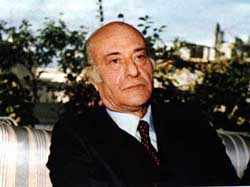
| © 2002-2003 www.uti.gr |